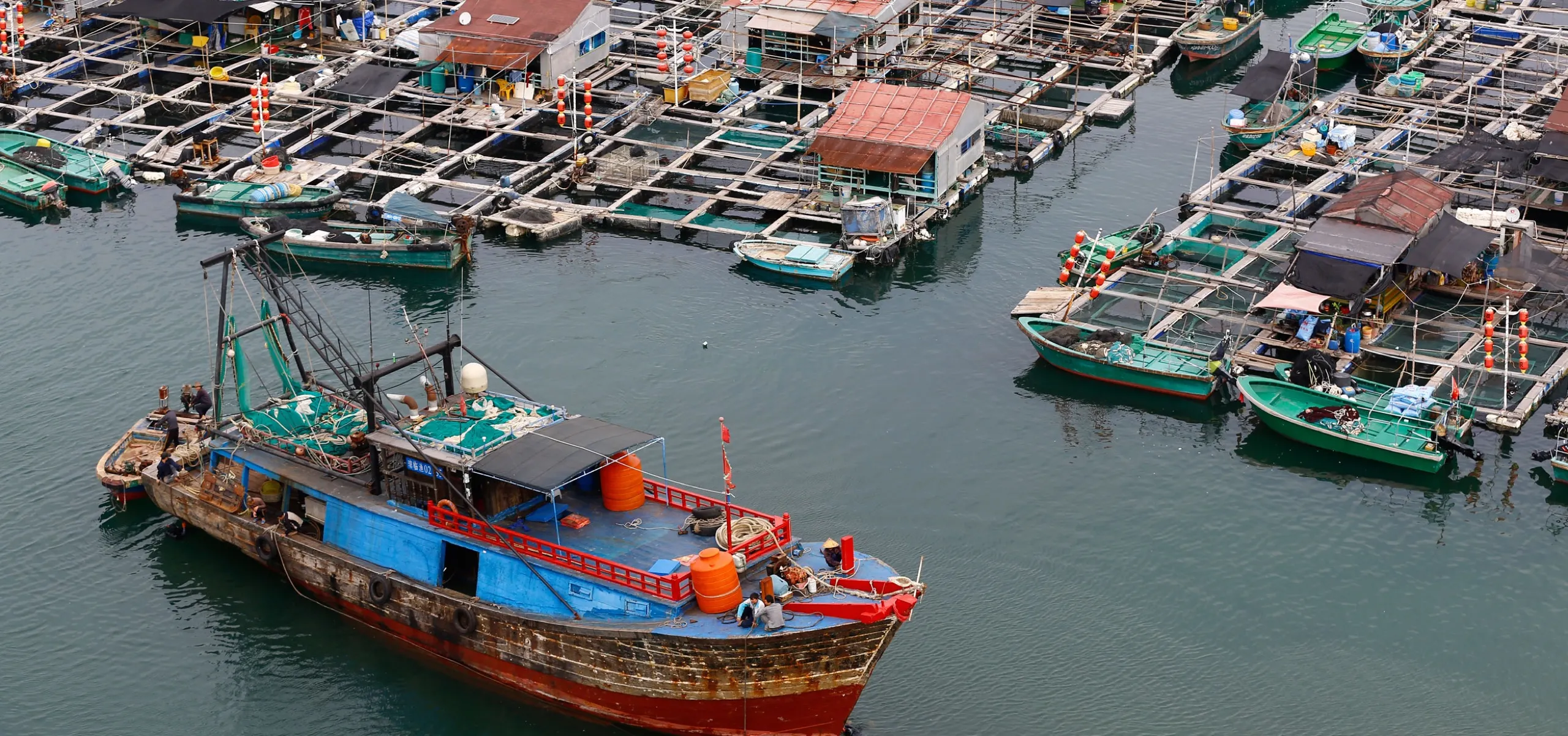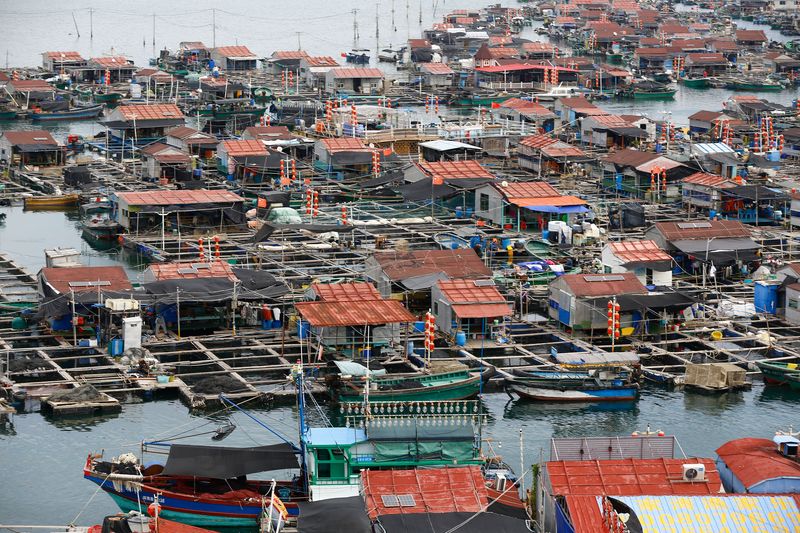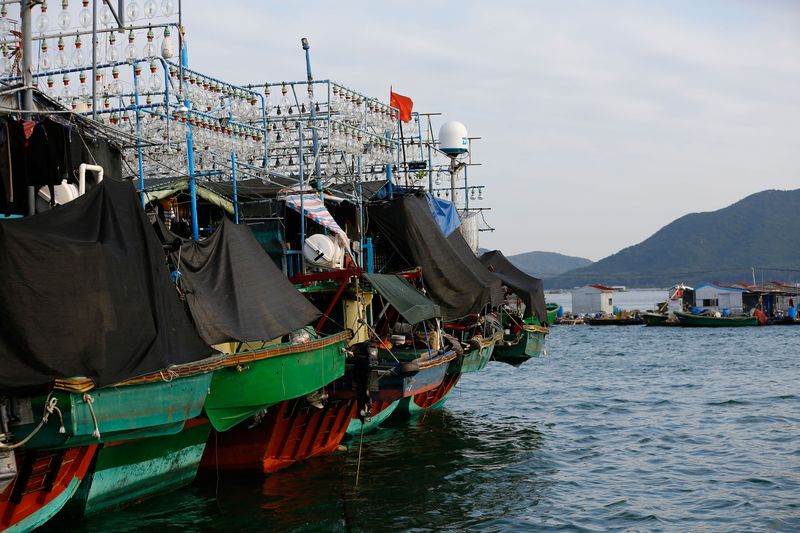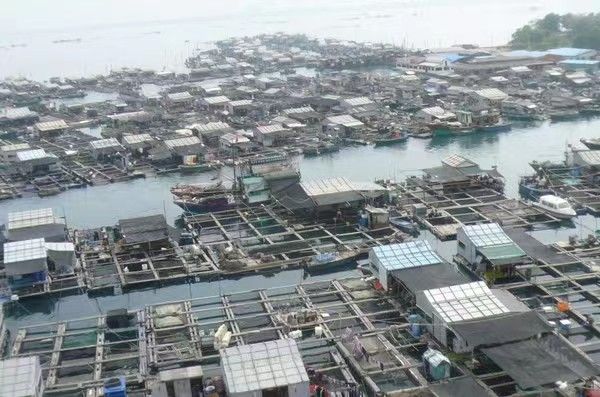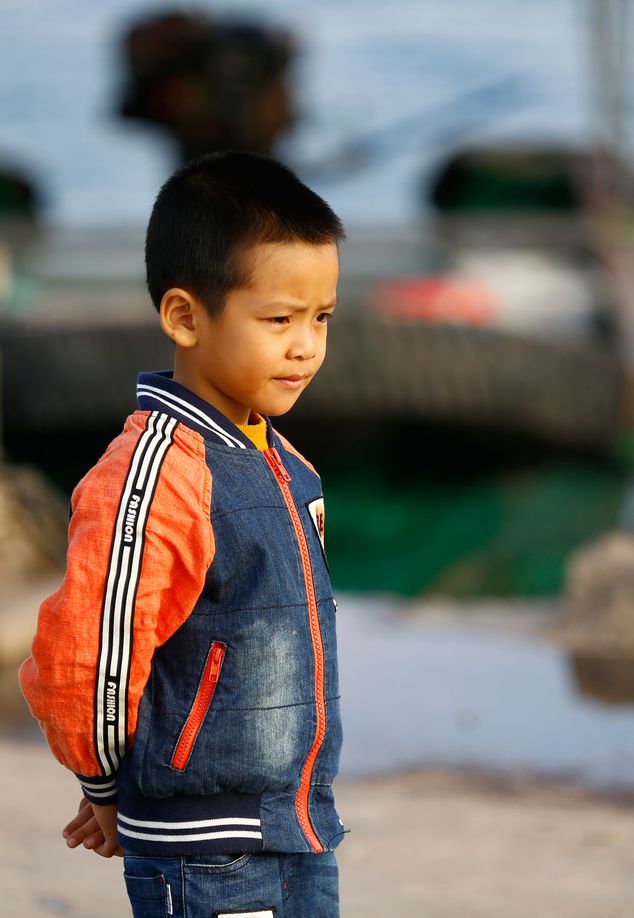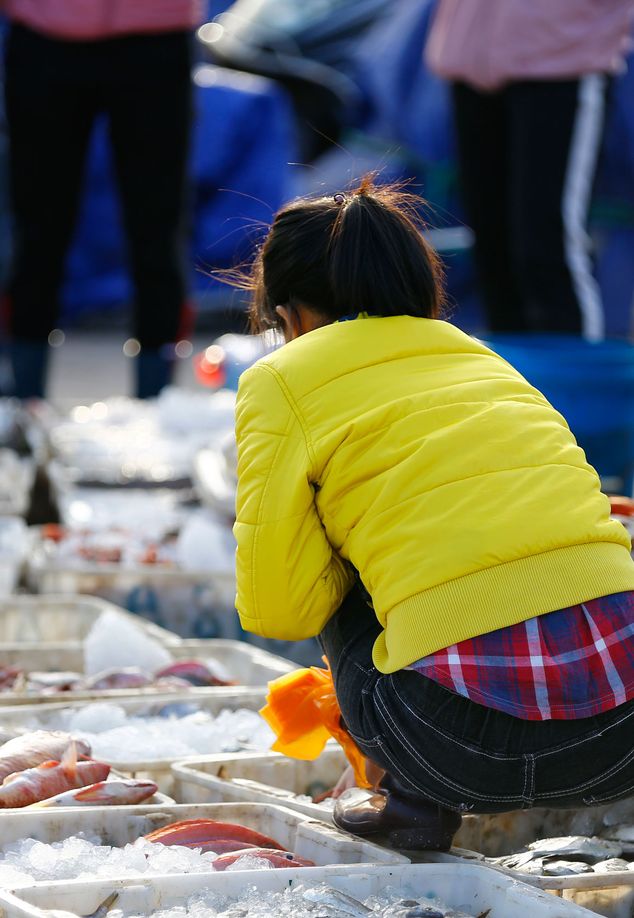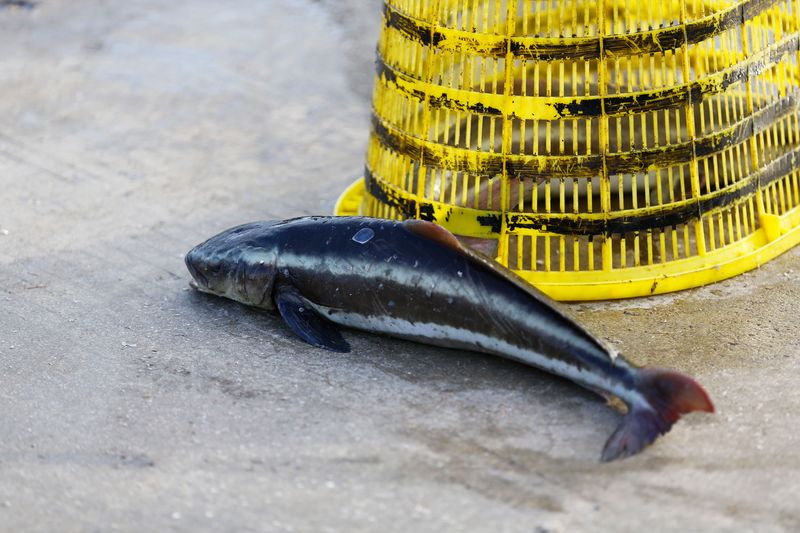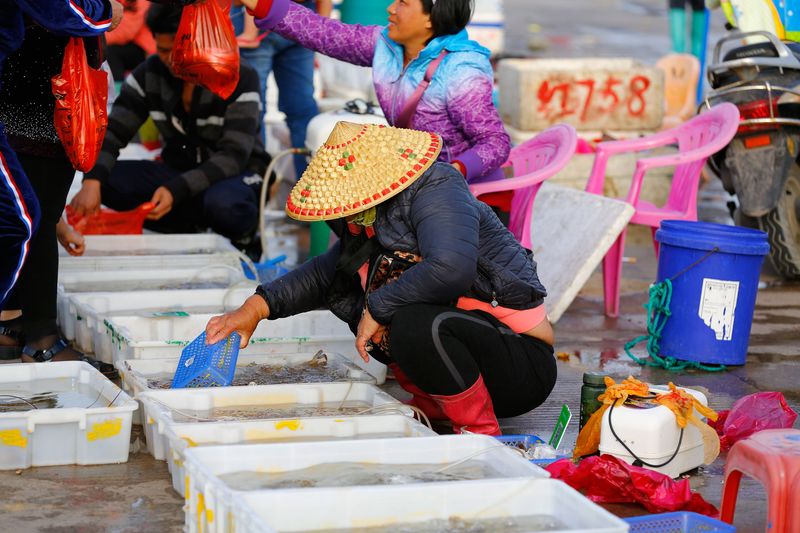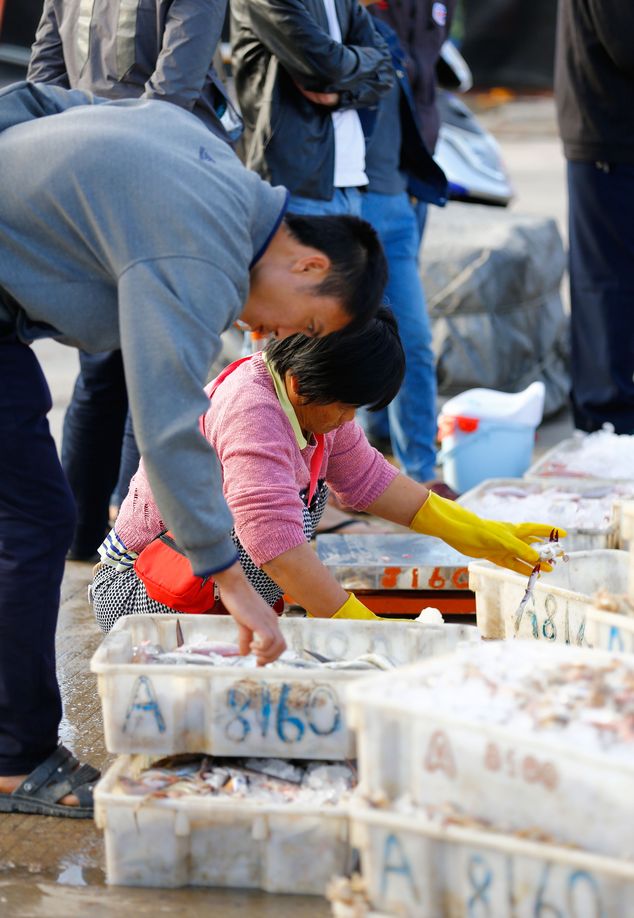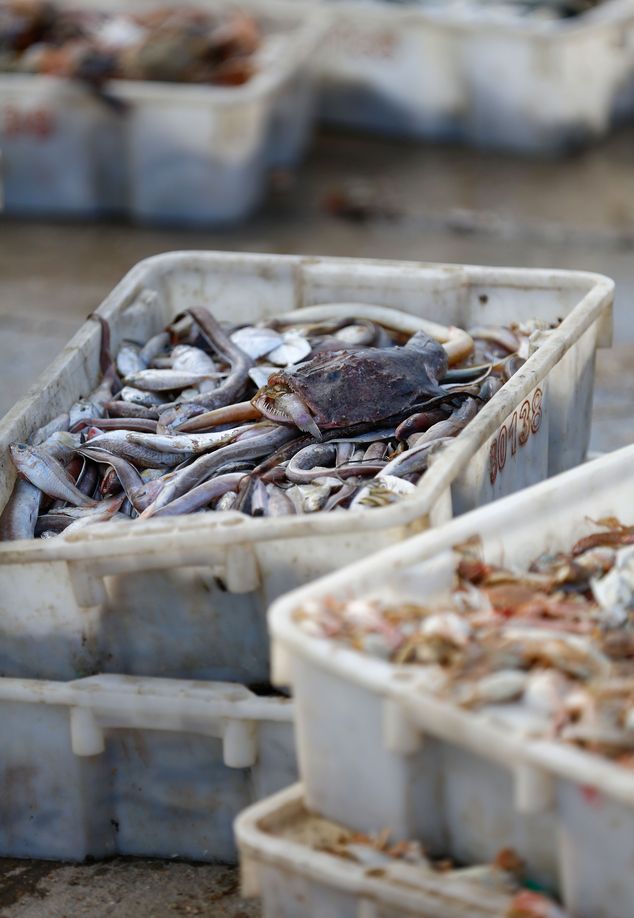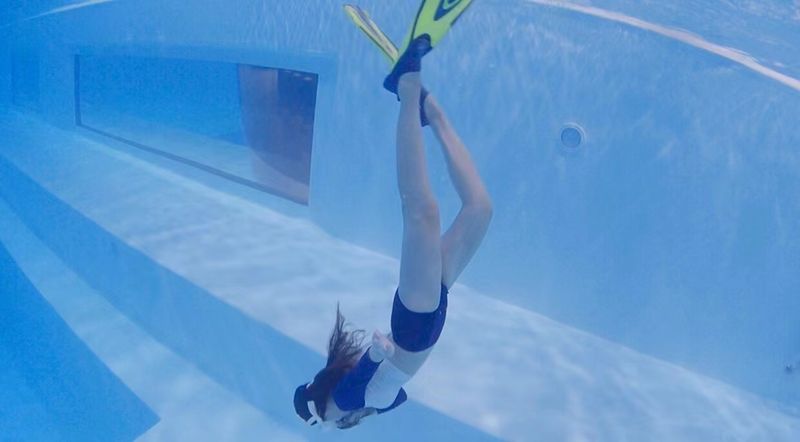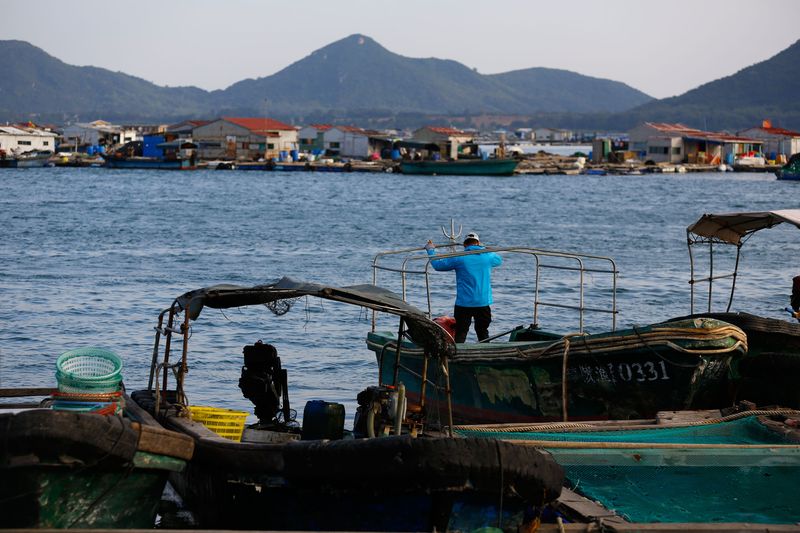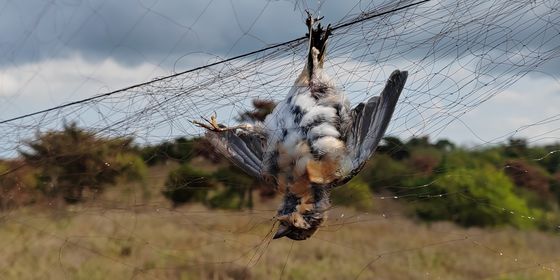How three generations of a family gradually gave up riding the waves off Hainan’s coast
In 2019, I accompanied a friend to Wanning, Hainan, to check out apartments. Our realtor was 26-year-old Ah Jin. His skin was a deep brown, and he was wearing a pair of cheap sandals. The collar of his t-shirt had long since stretched out, and he spoke with a thick Hainan accent. But he was handsome, clear-eyed, and tall, with a visibly muscled chest. We complimented him on his physique, but he just chuckled. “The only entertainment I had as a child was swimming in the ocean—it’s all due to the exercise.”
At the beginning of last year, my friend invited me to go back to Hainan for a vacation. After years without contact, Ah Jin suddenly reached out to us. It turned out he had also bought an apartment recently. He remembered that my friend was an interior designer, and wanted her expert help with the property inspection.
The property transfer went smoothly. As we were getting ready to leave the apartment, Ah Jin looked at the documents with his name on them. Two streams of tears suddenly rolled down his face. My friend laughed, “Why are you crying? Is it the excitement of officially owning your first home?”
Wiping away his tears, Ah Jin replied softly, “Ah Ma always said, when I have my own house, then I can say I’ve truly ‘gone ashore.’”
We looked at each other, wondering what he meant. He dried his tears, then told us the story of his family: three generations of “boat-dwellers,” nomads on the tide.
This is Ah Jin’s story:
-1-
In 1988, my 20-year-old mother, Ah Ma, married my 30-year-old father, Ah Ba, who knew nothing but fishing, drinking, and mahjong. My mother’s parents died early, so she was raised by her father’s sister. That year, her aunt was busy trying to arrange her son’s marriage, so she was eager to make room for the new bride in her home. This is how Ah Ma ended up married to my penniless father. For Ah Ba, the ceremony involved little more than retrieving my mother from a fishing boat in the neighboring village and bringing her back to his own boat.
The ancestors of the Danjia or Tanka people (疍家人) (Editor’s note: This term is considered pejorative today, and “boat people” is preferred), have always lived on the water, and were known as China’s “sea gypsies.” When I was little I asked my mother, “Dan is not our surname, so why do they call us the ‘Dan family?’” Ah Ma had no answer. She only knew that ever since she was born, she had been living on the coastal waters of Lingshui.
When I was older, I learned our history from the Universal Geography of the Taiping Era: “The Tanka people, administered by the county, are born on the rivers and seas and live on boats. They come and go with the tide; if they live on land, they die.” The 疍 (dàn) character sounds like “egg,” because some people thought that living on boats year-round made our people vulnerable, like eggshells.
For a long time, almost all boat people made a living by fishing. They traversed the waters between Hainan, Guangdong, Guangxi, and Fujian. Except during typhoons, our fishermen go out to sea almost every day, returning to the coast clean and repair their nets and sell fish. Occasionally, they catch the low tide to gather shellfish and oysters. After Ah Ma married Ah Ba, her life wasn’t so different from before: it’s just that she now served my grandpa, Ah Gong, instead of her aunt and uncle.
—
The ocean never has brought boat families much wealth. During her youth, my mother never left my grandfather’s wooden boat.
The boat was only five or six meters long. My father and grandfather would take turns standing at the bow to pole the boat forward and cast nets. The middle of the boat was a “ship’s cabin” made from a bamboo canopy, with long wooden boards fixed along either side. These served as both benches and beds. Clothing and food were stored beneath the boards on one side, while fishing nets were piled on the other side, along with water tanks, miscellaneous fishing gear, and repair tools. Whenever the sun was out, the top of the canopy would be covered with all kinds of drying fish.
My mother made cloth curtains for the two sides of the cabin, so that we could change and groom ourselves with more privacy and keep out some of the wind and rain. The stern of the boat held a basic kitchen, with a tiny brick stove and some wood and kindling. We had an iron pot for making the simplest “fish rice,” as well as an iron plate for frying fish and shrimp.
There is a local folk song that goes, “Ragged boats with ragged nets, floating all year round. Three generations in one cabin, eating rice half the year and husks for the rest.” It is an accurate portrayal of many boat families of that time. My grandfather also knew how to sing the Hainan “salt-water songs,” most of their lyrics relating to the ocean, tides, winds, and rains. I couldn’t understand them when I was young—I only remember one line from what my mother taught me, something like “The crashing waves of the South Sea, the fragrance of fish drifts across the continents, the tide rises and the tide falls…”
Of course, it’s not that every boat family was so desperately poor they had to eat rice husks for half the year. The ones with more money would build simple houses by the water: These weren’t good houses of reinforced concrete, just wood or bamboo scaffolding with old ship boards and scrap wood for floors, woven coconut fronds or bamboo leaves for walls, and layers of reeds for the roof. But they were already a step above the boats, doing a better job of keeping out the elements and providing a space to enshrine ancestral tablets.
—
The days at sea were dull and oppressive. Even though my dad was physically strong, his sole interests were drinking and gambling. He didn’t seem to like Ah Ma much. Whenever we came ashore, he’d often disappear for several days. Ah Gong didn’t wait for him, either. As soon as the boat was ready, he’d take my mother back to sea. Like many in the older generation, he feared that staying on land for too long would offend their ancestors and bring misfortune. He also feared that going too long without sea air would make our family clumsy on the water.
It wasn’t until my dad was 32 that Ah Gong got his long-awaited first grandchild.
Ah Ma had a difficult labor with my older sister. My dad wanted to have her give birth on the boat like countless women in boat families before her, but it was my “old relic” of a grandfather who insisted she go ashore to a hospital. My mother said that when my sister was born, she was soft and sweet-smelling, a beautiful baby. But my dad didn’t like her, and for a time even wanted to give her away. Ah Gong felt that, no matter what, we had to raise this first member of the third generation. And when it came to boat families and children, how could one be enough? No doubt a male child would come along eventually. So that’s how my sister’s spot in the family was secured.
As my grandfather hoped, a boy was born three years after my sister. That was me.
That year brought many changes for my grandfather. He stopped going out to fish daily, instead using all his savings and Ah Ma’s meager dowry to buy fish fry: mainly golden pomfret and red-heads, which sell well because Hainan’s natural conditions allow them to go to market earlier than in other places. With government support, he acquired his own wooden hut in a “floating” village on the coast. Even though we still lived on the water, we had finally ended our wandering. This was the first time we had neighbors we could get to know.
The floating village was dotted with fishing boats. There were thousands of plank walkways and fishponds enclosed with boards and netting. People walked in the 20- to 30-centimeter spaces between these grid-like enclosures. Every few rows, there were floating two-story huts that were moored to the wooden stakes in the ocean floor, like boat cabins fixed in place. The first floor was used for cooking, receiving guests, and storing fish feed, while the second floor would be divided into several bedrooms. Many boat people have never gone ashore in their lives or worn a pair of shoes. The wooden raft-houses are all they have, containing all their life and death, joy and sorrow.
—
After I was born, Ah Ba probably felt that he had fulfilled his duty of passing down the family name, so he started drinking and gambling more and more. He often stayed out for a month at a time. When he made the occasional appearance, he was always dead drunk, slurring curses at my mother: “Short-lived bitch!”
By that time, my big sister, Ah Jie, already understood. Even as a child, she was never close to my father. Before she started elementary school, she spent her days at my grandfather’s ankles. She picked up a lot of skills from him: She could plunge into the ocean and stay under for ages before resurfacing; she was competent in backstroke, sidestroke, and diving. She even learned skills that many of the boys didn’t, diving into coastal waters to spear fish and sea urchins.
When I was 3 years old, my mother gave birth to my little sister without incident. The doctor said it would be hard for her to conceive again due to her years of toil and malnutrition at sea. After my dad found out, he went on drinking and playing mahjong, sometimes even taking the money my mother set aside for restocking the fish fry. Powerless to stop him, she could only turn her back to us and cry.
-2-
Most of my childhood memories are of the ocean, Ah Gong, Ah Ma, and my sisters.
As far back as I can remember, Ah Gong’s face was full of wrinkles carved by the sea breeze. His hands were covered in blue veins, and his teeth were loose and yellow from years of betel nut chewing. Having lived most of his life on boats, he was used to going without shoes. The years of work and of stooping in the cabin had hunched his back early, but he carried the kind of strength that comes from long association with the ocean—he feared nothing. He liked to take us three kids into his arms one by one and sing fishing songs that none of us could understand. When my sister and I played in the ocean, he kept a keen eye on us, the most watchful of lifeguards.
After giving birth to my little sister, Ah Mei, my mother became thinner and thinner. But her eyes stayed bright. Aside from bronzing her skin, her time at sea gave her an unyielding determination and nimble grace. This petite woman could traverse reefs, swaying boats, and the narrowest of planks as if they were flat ground.
I don’t have many memories of our time on the boat together, aside from hearing my sister praise Ah Ma’s mending skills. Fishing nets are usually a boat family’s most valuable possession; a good net with dense mesh and strong nylon thread could be worth over 100 yuan. But even the sturdiest of nets was often slashed open by struggling crabs or sharp fins, and my mother would fix the holes right away. Net repair was a laborious and time-consuming task. With the shuttle between her teeth, her hands would fly over the net for an hour or two at a time as the blazing sun darkened her neck. While Ah Ma busied herself, Ah Gong would cast nets and haul the fish in.
Everyone has a few dishes they associate with their mother. For my part, I’ll never forget the fried mackerel we only got to eat during holidays. The first bite of freshly fried fish would always go to my grandfather, and the rest would be split between the children. My mother would only have a cursory taste.
Fishermen all know that “the mountains have partridges and deer, and the ocean has Spanish mackerel.” The fish has firm flesh and few bones; after frying, it is crisp and fragrant, a must-have delicacy on the Hainan holiday table. But these fish are extremely challenging to raise. The fry have high feed requirements and the juveniles tend to kill each other, so fishermen pin their hopes on catching them in the wild. When he got lucky, Ah Gong would catch one or two on the line. With nets, he usually got yellow croaker, pomfrets, and grouper. Only once in a while were there a couple mackerel, and these would usually be under 60 centimeters—small fry.
Back then, I didn’t know how hard these fish were to come by. I thought my mother just didn’t like them. It was only when I was older that I realized these fish were prized delicacies, commanding high prices at market. When prices were good, 500 grams of the fish could go for over 80 yuan. My mother was sacrificing her share in order to have more to sell.
—
The way I see it, my older sister was like another mother to me.
From a young age, she was able to go out fishing with Ah Gong and help Ah Ma repair nets. In her free time, she would take me and Ah Mei to play on the beach. She had a pair of skillful hands, using bamboo leaves to weave beautiful hats with hexagonal crowns and a thin coat of clear varnish. She liked to decorate them with shell fragments; when the tide went out at sunset, the hats would glow orange. Beyond our family ties, I loved her because she was smart and capable, gentle but firm. And my little sister was soft and sweet. She didn’t cry very much compared to other children. As long as she had a knee to sit on, she was always smiling.
After we settled in the floating village, my dad continued as before, rarely coming home. It was only when he was in a good mood after winning at mahjong that he occasionally brought us a rooster from shore to eat.
Ah Jie and I were envious of our next-door neighbor Xiuxiu. Her family had a much richer diet than ours. She was the same age as my older sister, but a good deal fatter. Xiuxiu was outgoing and sincere, a complement to my introverted sister. For a long time she was Ah Jie’s only friend. Her parents were inseparable, the picture of what a family should be, while our subsistence depended on my frail mother and elderly grandfather. Fortunately, Ah Ma was a hard worker and Ah Gong knew his fish, so the income from our ponds was just enough to support the family.
Later, as the tourism industry grew, Xiuxiu’s family went ashore to open a supermarket, turning their boat into a restaurant. During high season they would offer group meals, and my mother would help them out to make some extra money.
Just as our lives seemed to be getting better, one day my dad came back, saying he wanted to take my little sister with him to play mahjong. Chewing his betel, he told Ah Gong, "Yesterday Old Zhang brought his little girl to mahjong and kept winning all night. I’m gonna try it today.” My 3-year-old sister was as sweet as ever, resting calmly against Ah Ba’s shoulder even when scarlet betel juice burst from between his teeth. The two of them disappeared into the maze of enclosures.
She never returned after that night.
-3-
I have no concrete memories of Ah Mei’s death. All I know is that Ah Jie and I didn't see our mother or grandfather for two full days. Xiuxiu later told me that she heard the adults in her family talking about that night. My dad had my little sister out with him until late, and his luck was indeed good. After the session a few mahjong buddies asked him to buy the traditional winner’s round. When the drinking was done and my dad was on the verge of unconsciousness, my little sister started crying for Ah Ma. So he carried her into a little boat and headed for home.
The next day, my dad awoke alone in the boat at noon. Others had already found Ah Mei on the beach before dawn, no longer breathing. There were purple marks on her body, and they guessed that she had fallen off the boat and been battered against the reef before washing ashore.
Children who die young are not eligible for funeral rites, nor do they receive incense or offerings. Even though the boat people live their lives at sea, they are adamant that their dead should be buried on land. With the help of other fishermen, my mother and grandfather found Ah Mei a sunny place in the burial ground and laid her to rest.
According to custom, all of her possessions had to be taken ashore and burned. Soon, the house bore no traces that my little sister had ever existed. After this incident, my dad didn’t dare return home for over six months.
It seemed as if nothing had changed, but everything was different.
Ah Gong now rarely sat barefoot at the bow, singing his fishing songs. Ah Ma spoke even less. She no longer allowed my father to push her around, and spent more time working in village restaurants. She guarded the savings carefully, refusing to give him a single cent.
She also started caring more about the traditional customs and beliefs of our people. If we flipped over our fried fish to eat the other side, she would ruthlessly whack our hands with a piece of bamboo. Instead, after eating one side, we had to pluck out the bones to get to the meat on other side; otherwise, we would bring misfortune. Not only that, but we couldn’t take our first bites from the head, which represented the bow of the boat—doing so would court disaster. We weren’t allowed to invert our bowls or spoons on the table. She feared that if she showed the slightest disrespect to our ancestors, the ocean would take away her other children. She later told me that in the period after Ah Mei passed, she wanted to take us ashore so we could live in peace like other children.
Ah Jie stopped playing in the ocean and spent all her time studying. Xiuxiu was in the same class as my sister, and would often come over to copy her homework. She told me that whenever my sister met a new friend or classmate, she would say that her father was long dead.
My grades were spotty, while my sister always ranked in the top three of her class. This was my mother’s greatest consolation for her endless toil. After starting junior high, I came to detest my father as much as my sister did. The years of continuous drinking, smoking, and betel-chewing had taken away his youthful vigor, leaving him with stained teeth, unkempt whiskers, and the beginnings of a hunch. His reason for returning was always as simple as it was hateful: to ask my mother for money before going back to his mahjong and alcohol.
Only Ah Gong was still willing to speak to my dad. As time went on, my dad started returning only to pay respects to the family gods during the Dragon Boat Festival.
My grandfather said that in the old days, the boat people would go to the Dragon King temple to burn incense and give offerings before going out to sea. They would also enshrine the family gods in their boats and fish farms. These gods were ancestral tablets passed down over the generations, blessing descendants with plentiful catches, peaceful seasons, and good harvests from the ponds. As such, the Dragon Boat Festival was one of our most important holidays. The older generation believed that the Dragon King appeared on that day, and considered it the most effective day to pray for safety at sea.
But aside from during Dragon Boat Festival, my dad never showed up—not even when my grandfather was sick. Some said that he had shacked up with a woman on shore. I later heard a few things about his youth from my grandfather, but I still couldn’t understand his dejection and indifference. My dad had loved a woman on the shore whose family had done well in the pearl-farming business. Boat communities have been poor for hundreds of years; a city woman would never “marry down” to the sea. My dad’s lifelong dream had been to save enough money to go ashore and start a family, but the woman didn’t wait for him as they had agreed. She quickly married, and my dad gave up his dream. Resigned to a life at sea, he picked up his drinking and mahjong habits. I don’t know if his rumored partner was the same woman he loved in his youth, but I no longer had any illusions that he might return.
—
When we lived in the floating village, my mother often wanted to save money to buy a house and take us ashore. This desire was at its strongest when my sister was being bullied.
My sister had just started high school. She dressed plainly, and was proud to have never fallen in with any cliques. A few wealthy classmates resented her for her quiet ways and top marks. Later, these girls secretly followed her home, hoping to find something they could bully her about—only to discover that she was a Tanka living among the fish ponds. The next day, they nicknamed her “ocean waif.” Ah Ma didn’t know where they heard this from, but she was determined to go ashore and settle down. She would drag Xiuxiu’s mother along to look at apartments in the village on the coast when they went up for sale.
Just when she’d found a good option, my grandfather fell gravely ill. He coughed for over a month without improvement. Ah Ma took him to the big hospital in Wanning several times, where they told her it was chronic pneumonia he’d gotten from exposure—there was nothing they could do but help him recover slowly. In my memory, my grandfather was never one to make a fuss. Whenever there was some small illness or injury, he’d always say he was fine. Only later did I understand that he was walking the path of countless elders before him, who feared burdening their families, incurring costs, or being abandoned. Knowing that his illness had cost the family a lot of money, he felt guilty and distressed, refusing hospital stays and even medicine. Ah Ma brought the prescribed medicine home and asked him, “Don’t you want to see your grandson finish his studies and get married?” He thought for a while, and finally took the medicine.
Ah Ma made some careful calculations: My sister and I would need money for our studies, and grandfather’s illness might return. For the time being, she stopped thinking about buying an apartment and didn’t dare touch her savings again.
—
In the blink of an eye, it was time for Ah Jie to take her college entrance exams, and our long-vanished father started showing his face again. He looked older than before, with missing teeth and heavy bags under his eyes. His lifestyle gave him a listless air. We gleaned his intentions from one of his fights with our mother: He had found a family to marry my sister off to, and wanted to split the dowry.
My mother had Xiuxiu’s family ask around to see who this other family might be. After much hassle, they discovered that my father owed this family a significant amount of gambling debt. The son had a congenital disability in his right leg, making it hard to find a match, so the family covertly proposed that he settle the debt by marrying off his daughter.
Ah Ma and Ah Gong chewed him out several times, but he stuck around like a dog-skin plaster. He’d sometimes bring that family around to scout out my sister, even lying in wait outside her school. My sister had to borrow a teacher’s phone and call Ah Gong in order to get home safely. I thought that arranged marriage was something from the old days, not something that could affect those of us born in the 90s. By then, Ah Jie had grown into a graceful woman: still making top marks, gentle and smart. She had originally planned to apply to Hainan University so she could be close to home, but our dad’s actions threatened to derail all her plans.
We were all at home that day, Ah Ma having just come back from the restaurant with the owner’s leftover seafood rice. As we were eating, she suddenly grasped Ah Jie’s hands and said, “Get out of here. Don’t worry about us. Go to the mainland and live your life.” My grandfather didn’t say anything, but he looked at her and smiled softly.
In 2008, with her lifelong interest in history and cultural artifacts, Ah Jie applied to a school in Xi’an and easily made it in. It rained heavily at sea the day she left. Ah Ma and Ah Gong pulled together 10,000 yuan and put it on a card that they stuffed into her luggage. Stroking a white crescent-shaped scar on the skin between the thumb and forefinger of her left hand, Ah Jie said to me, “Look, Ah Mei scratched me here when she was little. At the time it was deep enough to bleed. Now, it’s almost the only thing I have left of her, and it’s already faded so much that I can hardly make it out.”
After a while, she stroked my hair and said, “Ah Jin, take good care of Ah Gong and Ah Ma, and grow up fast.”
-4-
Ah Jie didn’t return home for several years, and neither did she ask Ah Ma for help with living expenses.
I guessed the first reason was that Shaanxi is far from Hainan, and she wanted to save money; second, she still carried a deep hatred for our father and wished to avoid any further entanglement with him. We even told her that upon learning that she’d left, he came back and threw a tantrum, smashing some furniture and electronics before disappearing completely. He even stopped showing up to make offerings during the Dragon Boat Festival. When he came up in conversation, she would only say, “He was dead to me long ago.”
Despite the distance, she would always send our mother some money during holidays, or when my grandfather fell ill, or when the fishponds or house needed repairs. We guessed that she’d asked Xiuxiu be her “eyes and ears.”
When Ah Jie called home, she would tell us only the good news, never the bad, so we also had to ask Xiuxiu about how she was doing. She hadn’t had an easy time in college. Though my sister had been among the best students in Hainan, she wasn’t even in the top 50 on the mainland. There were no scholarships or grants in her first semester, so she used the money Ah Ma gave her to pay the tuition. She scrimped through the week and lived off the money she made by tutoring on the weekends. During the winter holidays, when the other students went home, she found temporary jobs at supermarkets and restaurants.
By her second semester, Ah Jie was able to cover half of her tuition with scholarships, but she still had to work to cover the rest.
One time around Labor Day, with amusement parks packed to the gills, Ah Jie’s roommate took her to temp as ticket-takers at the aquarium. That day, the park’s “mermaid” didn’t show up. Hearing she could make 600 yuan a day, Ah Jie volunteered for the job. She passed the test without a hitch and took over the position.
Having spent her childhood in the ocean, my sister never thought that she would return to the water for the sake of money, or that she would keep it up for several years. Xiuxiu couldn’t hold back her excitement when she told us about this: “You’ll never guess her signature skill! The aquarium didn’t have a mermaid who could perform without goggles, but your sister can. Remember how she could always spend ages underwater in the ocean? A water tank is nothing.”
Listening to Xiuxiu’s stories, I could perfectly imagine my sister diving gracefully toward the bottom of the tank, her hair a smudge in the water. The ocean had taken away our little sister and brought us endless sorrow, but it also silently restored life to my big sister.
Later, besides working at the aquarium, she got her free-diving instruction certificate and started taking students. Our mother had always worried that my sister’s money came from questionable sources, but now she could set those worries aside.
—
Near the end of 2017, Ah Jie got married. She originally wanted to bring her husband home to see us, but Ah Ma tactfully dissuaded her. She was afraid that our poverty would scare off her new son-in-law; that the bare-bones village, her aging father-in-law, and her own poor Mandarin skills and shabby clothes would reflect poorly on her daughter. She was even more afraid that Ah Ba would make a reappearance and ruin a good thing. In the end, I went to Shaanxi to attend the wedding on behalf of the whole family. That was my first time leaving the island, first time riding in a fast train, first time experiencing the outside world in any meaningful way.
My brother-in-law is a kind and gentle man, a perfect match for my sister. The two of them asked if I wanted to stay in Xi’an. I thought of my mother and grandfather all alone back home, and turned my footsteps back toward the fishing village.
-5-
My grades weren’t as good as Ah Jie’s, nor could I leave my mother and grandfather, so after finishing high school in 2011, I went to tourism school in Haikou and worked as a tour guide after I graduated. During that period, I fell deeply in love with a girl named Jiarong. She was from Chongqing, with fair skin, a warm smile, and a forthright personality. When she was quiet, she looked remarkably like Ah Jie in profile. She worked at the reception desk of a five-star hotel popular with the tourists. Since the travel agency I worked for had an ongoing relationship with the hotel, we gradually became acquainted.
After I brought tourists to check in, Jiarong would refill my cup with water and sneak me a hotel towel to wipe my sweat. The Hainan sun is fierce, and she also slipped me some sunscreen to rub on my peeling neck. When we chatted during our occasional spare moments, Jiarong told me that she would ultimately return to Chongqing to be with her parents.
I knew that I had to curb my feelings. As a poor boy from the boats, there was no way I could afford any property in Haikou or Sanya or settle down for another few years. It was only fair for Jiarong and I to stay just friends.
That period as a tour guide was the easiest period of my life. Almost every month, I would return to the fishing village to be with Ah Ma and Ah Gong, and I also had weekly video calls with Ah Jie. Like many youths born on the boats in the 90s, I was gradually shedding the imprints of my origins. I was no longer as close to the sea as I used to be, but it was never far away.
—
My grandfather suddenly passed away during the winter of 2018. I rushed back from Haikou, but Ah Ma and Xiuxiu’s mother were already making funeral preparations. Ah Ma told me that he died of a heart attack, a quick and relatively painless death. The older generations believe that only people who haven’t done any bad deeds in life can have such an easy death. In line with customs of the boat people, we rented a mourning hall for my grandfather, where he stayed for seven days before he could be buried. My sister also hurried back from distant Shaanxi. None of us expected that our reunion after so many years would come under such circumstances.
Before the burial, I tried calling my dad’s cell, but it had already been disconnected.
Now, the floating house felt even emptier. Against my mother’s protests, my sister stayed for two months, spending the full 49-day mourning period with Ah Ma before returning to Shaanxi for the Lunar New Year.
At the end of the next summer, my sister had good news—she was pregnant. From the video screen, she said: “It’s definitely a boy. Ah Gong’s come back to us again.”
—
After my grandfather passed, I started nursing the idea of buying an apartment in Hainan and getting my mother out of the fishing village. My mother was aging; it was getting harder for her to deal with the toil and the damp. Xiuxiu’s family had long since turned the restaurant over to another operator and settled in Wanning.
When Xiuxiu found out what I was thinking, she introduced me to a real estate agency. If I learned this trade from scratch, I would be able to save money much faster than as a tour guide. Until the end of 2019, when the pandemic broke out, tourism was still booming in Hainan. Many people came to buy property or stay the winter. I brought much of my old client base into my new line of work, renting and selling where I could and earning decent commission. I was lucky to be able to help a client sell a 200-square-meter luxury apartment in Shimei Bay, saving my first nest egg that way. Meanwhile, Jiarong returned to Chongqing and became another stranger in my WeChat Moments feed.
In November, Ah Ma gave me the money she and Ah Gong had saved, and I was able to buy a small apartment in Wanning. Only then would I say we had truly “gone ashore.”
After the pandemic broke out in early 2020, the investors and tourists gradually stopped coming. Most of the “snowbird” retirees from cold regions like the Northeast and Xinjiang didn’t come back to vacation in Hainan that winter. With only the locals remaining, we had a rare glimpse into the island in its natural state—and I had to hit pause on my agency work.
I returned to the fishing village to be with my mother, once again setting my clock by the sun. When she made offerings to our ancestors, she said her only desire now was for me to be able to get married and settle down on shore. She had accumulated white hairs over the years, but she was still in good health. When she threaded her way along the narrow planks between the ponds, she walked like she was on land. It was as if she had absorbed the fighting spirit that allowed Ah Gong to face the ocean day after day.
My sister also gave birth in the devastation of the pandemic. As she had hoped, it was a boy. Ah Ma wondered whether our ancestors’ blessing had really allowed Ah Gong to return. My father never came back, but his return had long stopped mattering to us.
These days, more and more boat families have gone ashore. A number of them still maintain their fish enclosures, working in aquaculture or the restaurant business. The tourists come to Lingshui in droves, seeking out the floating cities we have built and the stories behind them. The ocean is brutal and yet beautiful, just like the lives of generations of boat people on its waves. We grew up on the water, but the tides of our times have pushed us farther and farther from the ocean. Perhaps our comings and goings will someday be recorded in epics, but history already bears the indelible marks of our stories.
My mother told me that when I was born, my grandfather named me Haijin (海进). It means to face the ocean with courage, to cut smoothly through the waves.
The ocean, after all, is the home that generations of our people have carried in our hearts.
Written by Qin Yue (覃月)
Photography by Qin Yue and Zhong Ming
This article originally appeared in Chinese in Renjian the Livings. It has been translated and reprinted with permission.





